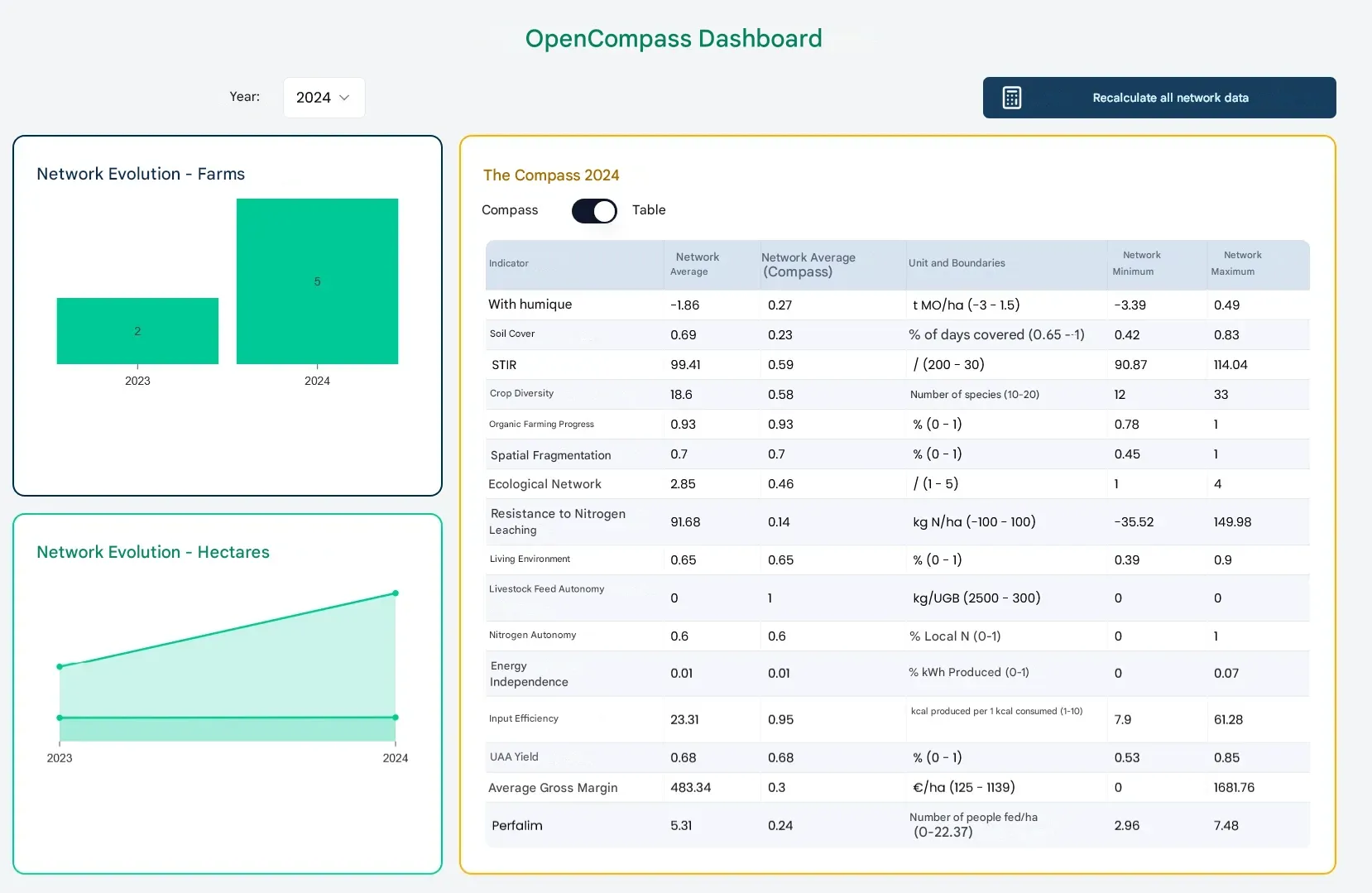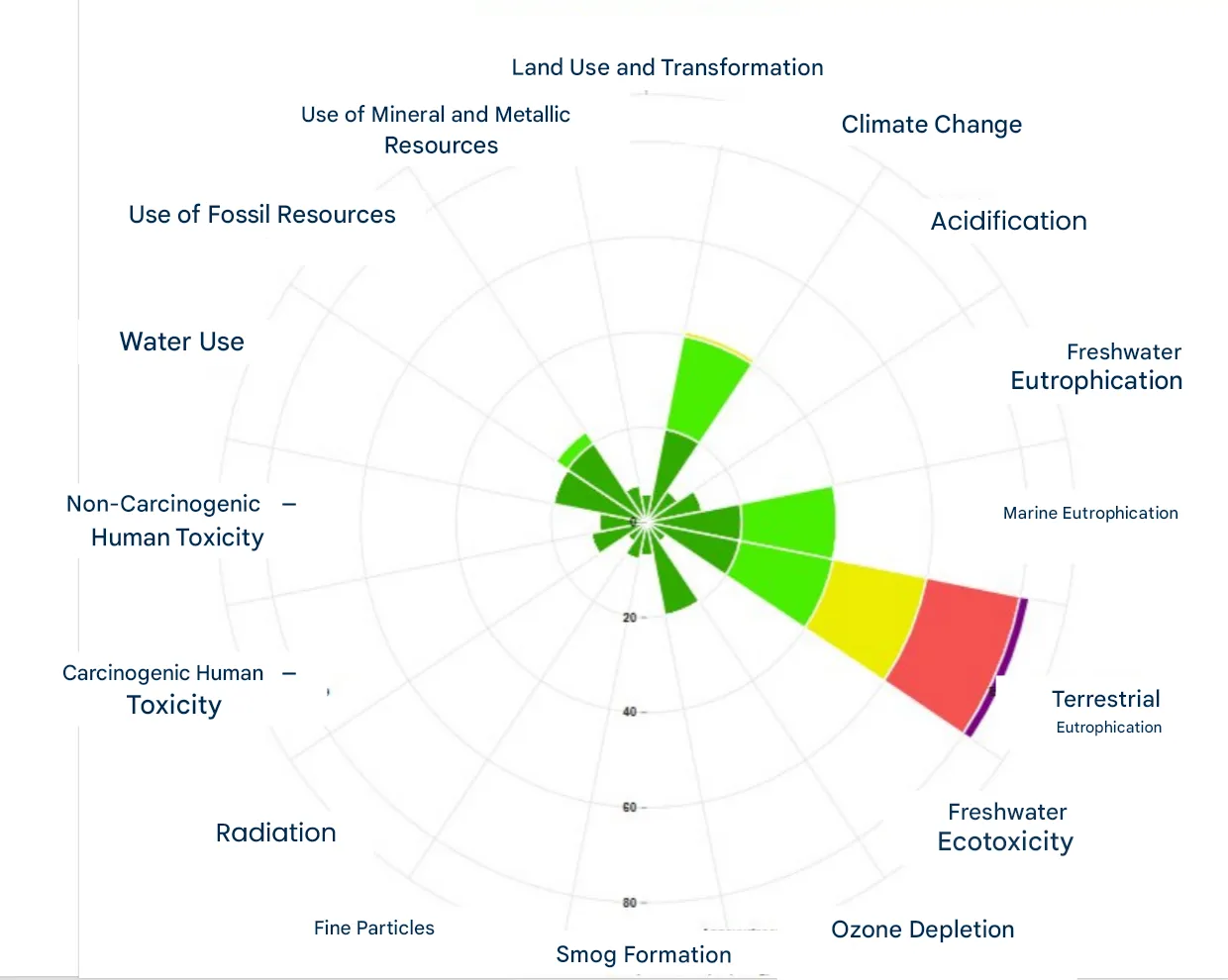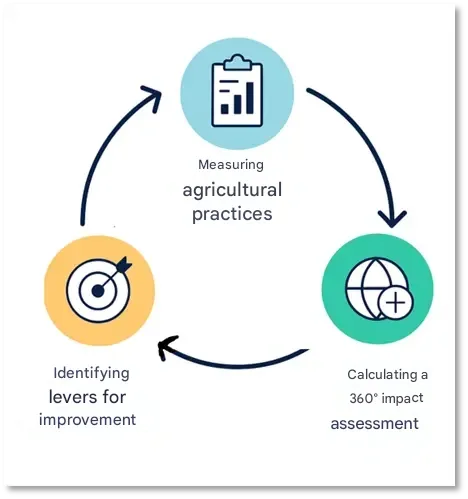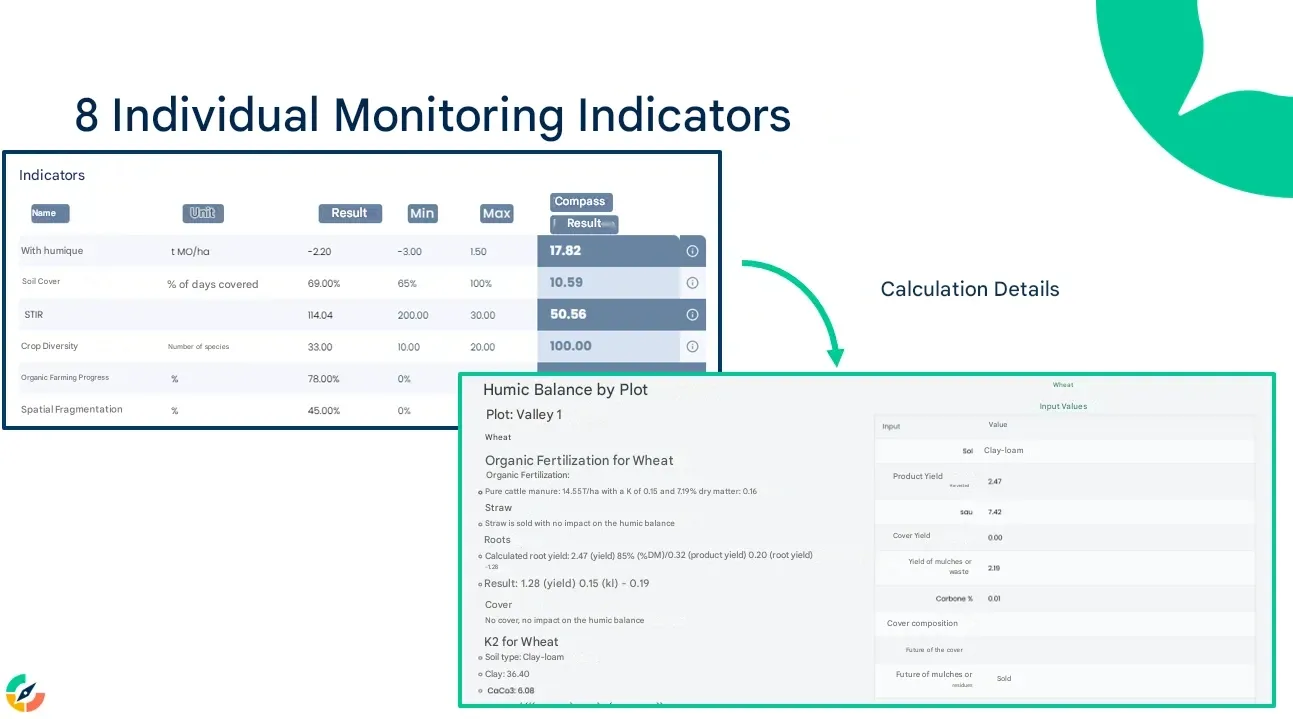Bringing together food industry stakeholders around sustainability
- Measure. Track your environmental and social indicators.
- Improve. Identify concrete ways to improve.
- Enhance. Gain recognition for your efforts across the value chain.

Results
200 farms
already monitored
8500 ha
in transition
4 years
of field data
OpenCompass, a digital platform that

Assesses agricultural practices based on field data
OpenCompass collects primary data directly from plots and describes your agricultural practices using a set of standardized indicators, thus building an accurate portrait of the actions taken.
Calculates a comprehensive 360° impact assessment
Based on observed practices, OpenCompass performs a complete life cycle analysis (LCA/PEF) to evaluate the environmental and health footprint of your agricultural production, covering all impact factors.


Identifies improvement levers
By linking practices and their footprint, OpenCompass allows you to detect the most virtuous practices and guides the farmer towards concrete choices to sustainably reduce your impacts.
An open and verifiable methodology

Describes each calculation transparently
Committed stakeholders
A scientific committee
« Connecting agricultural practices with environmental and health impacts turns intentions into evidence »
OpenCompass is for
For farmers to:
- Measure the impact of their practices on nature and health in a clear and reliable way.
- Identify action levers.
- Strengthen the resilience of their farm against climatic and economic shocks.
- Enhance their efforts and progress with buyers and supply chains.
- Advance at their own pace, considering their starting point, in a recognized and shared approach.
For food industry stakeholders to:
- Access reliable and verifiable data directly from farms.
- Integrate these results into their environmental reports, certifications, or responsible communications.
- Understand the real impact of their products on ecosystems and human health.
- Track and support the progress of their agricultural suppliers through shared indicators.
- Build more sustainable and market-recognized supply chains.
- Support all producers, regardless of their starting levels, towards common and transparent objectives.













